Oak Bluffs, Aug. 11, 1876
The whale-boat race came off Friday afternoon, as per announcement, under circumstances generally auspicious. The day was fine, with a refreshing breeze slightly ruffling the water, and the crowd which lined the bluffs and shore from “Lovers’ Rock” to East Chop light, attested the degree of interest felt in the event, and was certainly calculated to fire the breasts and stimulate the muscles of the gallant oarsmen, There were four entries for the race, as follows: -
Edgartown, of Edgartown - Geo. C. Fisher, captain; John Gordon, stroke’ Chas. Pease, tub; Cyrus Norton, midship; Isaac Norton, bow; James Matchett, harpoon.
Six Ward, New Bedford - Chas. G. Taber, captain; W. H. Westgate, G. P. Wilcox, D. C. Jennings, S. Westgate, C. N. Jennings.
Centennial, New Bedford - Stephen Cornell, captain; Geo. Tripp, Wm. Luce, D. Mitchell, J. Durfee, J. Shanks.
Vesta, New Bedford - Thomas G. Wing, captain; T. McEllery, John Hines, G. E. Gifford, Chas. Lawton, Henry Carr.
The course was from a point opposite the South end of the plank walk, a mile up and return, parallel with the shore. The boats started at about half past one, and passed the Sea View in the following order: Sixth Ward leading by two or three lengths, Centennial next, Vesta a length or two behind, and Edgartown last. At the beginning of the home-stretch the relative positions were - Sixth Ward first, Centennial three or four lengths in the rear, Edgartown next and Vesta last, a length or so between each and the next of the three. As they repassed the Sea View, the Centennial had reduced the distance between it and the Sixth Ward to a boat’s length, and maintained that position persistently to the close of the race, crowding the Sixth Ward to the last extremity. The Edgartown and Vesta were somewhat in the rear, Edgartown leading by two lengths, and preserved their mutual relations to the end. The time was as follows: Sixth Ward, first, 21 minutes, 54 seconds. Centennial, second, 22 minutes 2 seconds. Edgartown, third, 22 minutes 35 seconds. Vista, fourth, 22 minutes, 44 seconds. The prizes were $55 for the winner, $40 for the second and $25 for the third. Each crew was also provided with a bountiful dinner at the Sea View after the race.
The Edgartown crew were singularly unfortunate, and indeed a fatality seems to attend the crews from that quarter. It will be remembered that last year, but a few minutes before the race was to commence, a misunderstanding occurred which resulted in the withdrawal of one member and the throwing up of the race by the crew. Subsequently the vacancy was filled, but by that time the boats had been called to the starting-point, the signal had been given to start, and thus the Edgartown crew found themselves obliged to make a quarter of a mile “spurt” to reach the point, from which, ere they gained it, the rival boats were already flying away over the course. In spite of these disadvantages, however, that boat came in second of half a dozen, made better time than all, and its friends found what comfort they could in speculating on what “might have been” if the goose had only hung a little higher at the outset. This time the crew were on hand and the start was made in good shape, but hardly half a dozen strokes had been pulled when the gunwale around the rowlock of the after oar gave way, and thereafter throughout the race that oar had to be handled with a tender care and an affectionate solicitude that must have been highly edifying to the other contestants, but that doubtless elicited something quite the reverse of thanksgiving from the lips of that ill-fated crew. Add to that it was soon found that the boat leaked like a sieve, and as a consequence she came gallantly to the finish with a cargo of four barrels of water. Therefore the souls of the friends are once more harrowed up with thoughts of the immense possibilities of the situation and an opportunity not embraced, and again they hug to their hearts the consoling reflection of how much might have been accomplished under other and more favorable circumstances: but it’s slim comfort. And, moreover, the crew themselves do not receive the sympathy that might have been accorded them, as the impression is quite prevalent that they were well aware of the condition of their boat before the race, but neglected to take any measures to improve it.
The arrangements for the contest were admirably planed and executed by the committee having the matter in charge, and the occasion was a very enjoyable one to the great throng of spectators present.




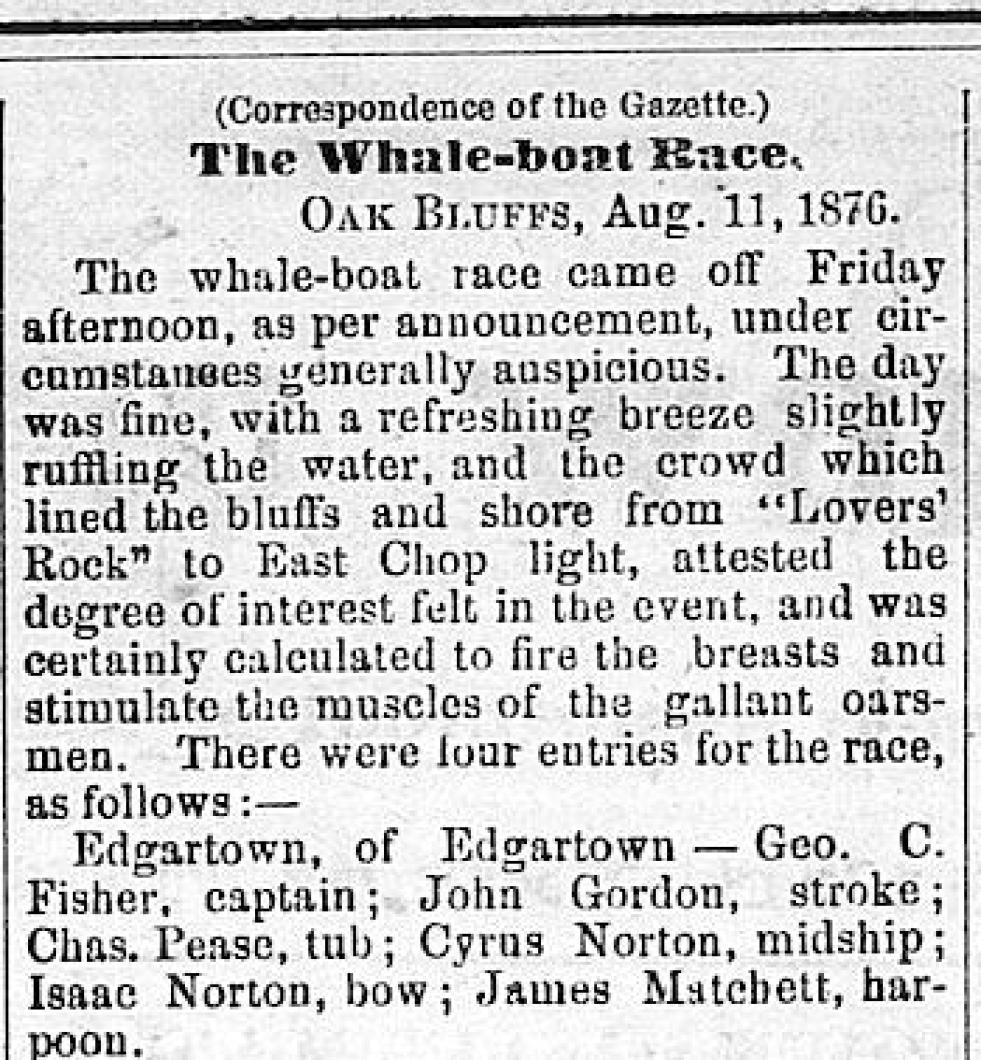
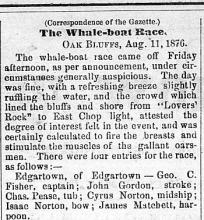
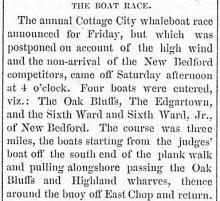
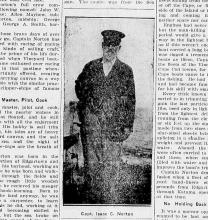
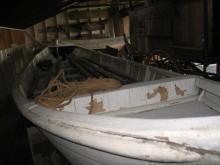
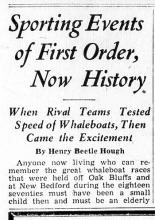
Comments